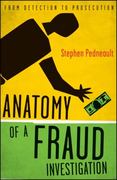Question
An endowment economy only exists for three periods (period 1, period 2, and period 3). A representative household values consumption each period (C1, C2, C3).
An endowment economy only exists for three periods (period 1, period 2, and period 3). A representative household values consumption each period (C1, C2, C3). In the textbook/classroom example, we have complete certainty that in the future periods, the household has the same utility function as the current period (u(C1), u(C2), u(C3)). In this economy, however, the household has some uncertainties about their period 3 utility. They have a 50% chance to remain the same utility as periods 1 and 2 (u(C3)), and have a 50% chance of receiving some spiritual revelation, where they appreciate everything m times more (mu(C3), and m > 1). In this case, the third-period utility must be the summation of the percentage of each occasion's utility (percent of chance multiplying regular utility + percent of chance multiplying spiritually heightened utility). The household still receives endowment every period (Y1, Y2, Y3), discounts future periods by , and faces different interest rates for each period (r1, r2).
- Please set up the lifetime objective function for the household. Make sure to denote the choice variables they have and the function (objective) they maximize.
- Please set up the period-by-period budget constraint (you can ignore the terminal saving, as it's zero anyway).
- Please set up the intertemporal lifetime budget constraint.
- Please derive the Euler Equations for optimal consumption choices between C1 and C2.
- Please derive the Euler Equations for optimal consumption choices between C1 and C3.
- If the utility function is a log utility (U(C) = lnC, which means the derivative of lnC = 1/C), could you use your answers in (d) and (e) to find a closed-form solution for first-period consumption demand: C1?
- Could you use your closed-form consumption demand for C1 to derive a formula for the Marginal Propensity to Consume with respect to Y1?
- Could you draw a consumption demand curve for C1? Please carefully mark the key elements of the graph. What's the slope of the curve? Where do we see the optimal level of consumption?
- Could you draw a general equilibrium graph where we have AD and AS?
- What would happen to the MPC in period 1 if the spiritual revelation in period 3 won't happen anymore? In other words, people in periods 1 and 2 know that mwill either become very small or disappear.
- How would the disappearing of m in period 3 impact the consumption demand curve in (h)? What happens to the AD and AS curves now? What are all the general equilibrium outcomes in period 1?
Step by Step Solution
There are 3 Steps involved in it
Step: 1

Get Instant Access to Expert-Tailored Solutions
See step-by-step solutions with expert insights and AI powered tools for academic success
Step: 2

Step: 3

Ace Your Homework with AI
Get the answers you need in no time with our AI-driven, step-by-step assistance
Get Started


